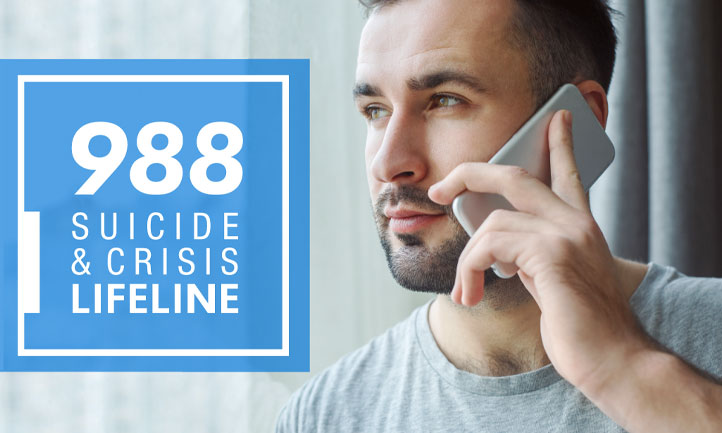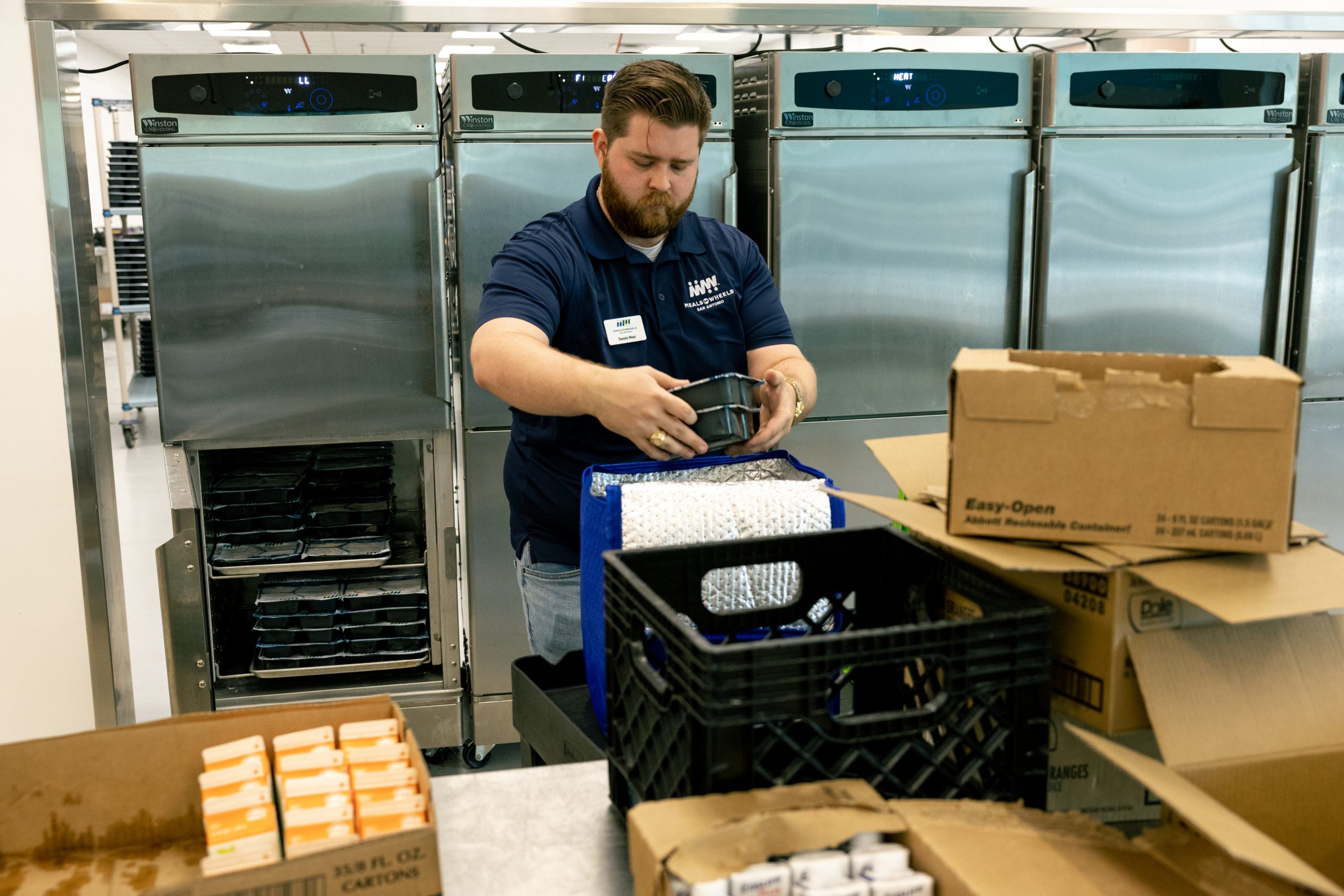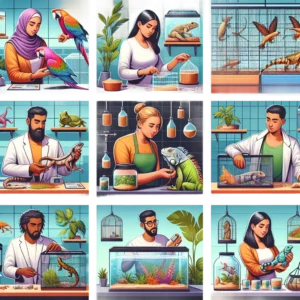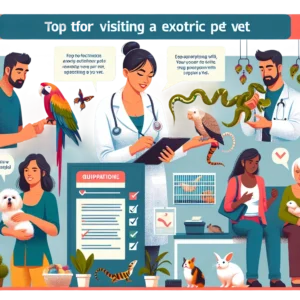Suicide & Crisis Lifeline Connects People With the Help They Need
Suicide & Crisis Lifeline connects individuals with the necessary assistance they require, providing a lifeline in times of crisis. Every year, countless people face overwhelming challenges, leading to thoughts of suicide and crisis.
In these times of desperation, having access to immediate support can make a tremendous difference. Suicide & Crisis Lifeline strives to be that crucial connection, offering individuals a lifeline they can rely on. By offering a 24/7 helpline and online chat services, trained professionals are there to listen and provide guidance, helping to prevent tragedies and promote mental well-being.
Whether dealing with depression, anxiety, or other challenging circumstances, Suicide & Crisis Lifeline is dedicated to connecting individuals with the help they need during their darkest moments.
The Importance Of Suicide & Crisis Lifeline Connects People
Suicide & Crisis Lifeline connects individuals in need with essential support, offering a lifeline during times of crisis. Connecting people to the help they require, this service is invaluable in preventing tragic outcomes.
Why Suicide Prevention Is Crucial For Society:
- Suicide is a pressing public health issue that affects individuals, families, and communities.
- Prevention is essential to save lives and promote mental well-being.
- Suicide prevention efforts can reduce the stigma surrounding mental health and encourage open conversations.
- Promoting awareness and understanding of the risk factors and warning signs can help identify individuals at risk.
- Access to appropriate mental health resources and support is vital for those in crisis.
The Role Of Crisis Hotlines In Saving Lives:
- Crisis hotlines provide immediate support to individuals in distress, offering a lifeline during critical moments.
- Trained professionals and volunteers on crisis hotlines can offer compassionate listening and guidance.
- Crisis hotlines are available 24/7, ensuring immediate access to help whenever it is needed.
- Confidentiality is a priority, creating a safe space for individuals to express their thoughts and feelings without fear of judgment.
- Crisis hotline staff can provide referrals to appropriate mental health services and resources for ongoing support.
Remember, suicide prevention is not only the responsibility of crisis hotlines, but also a collective effort that involves society as a whole. By raising awareness, fostering understanding, and ensuring access to support, we can help create a society where everyone feels valued, supported, and connected.
Connecting Individuals With The Help They Need
Connecting individuals with the help they need, Suicide & Crisis Lifeline is a essential resource for those seeking support and intervention in times of crisis. This lifeline efficiently connects people with necessary assistance to promote well-being and prevent suicide.
Suicide & Crisis Lifeline Connects People With The Help They Need
At times, we may find ourselves in situations where we feel overwhelmed, alone, and without a lifeline to turn to. In moments of crisis, having someone to talk to and guide us towards the help we need can make all the difference.
Suicide & Crisis Lifeline recognizes this need and operates as a vital resource for connecting individuals with the support they require. This important organization provides assistance through trained volunteers who are equipped to empathize, listen, and connect callers to appropriate resources.
We explore how Suicide & Crisis Lifeline operates, the impact of its trained volunteers, and the process of connecting individuals to the help they need.
How Suicide & Crisis Lifeline Operates
Suicide & Crisis Lifeline functions as a helpline, offering round-the-clock support to individuals in crisis situations. Here’s an overview of how this lifeline operates:
- 24/7 Availability: Suicide & Crisis Lifeline is available 24 hours a day, 7 days a week, ensuring that help is always within reach.
- Trained Volunteers: A core strength of this lifeline lies in its dedicated and well-trained volunteers who undergo rigorous training programs. These volunteers are equipped with the skills and knowledge necessary to provide compassionate support.
- Confidential and Nonjudgmental: Suicide & Crisis Lifeline ensures a safe and confidential space for individuals to express their emotions and concerns without fear of judgment. The lifeline’s volunteers create an environment that encourages openness and understanding.
The Impact Of Trained Volunteers On Callers
The presence of trained volunteers can have a profound impact on callers during crisis moments. Here are a few ways these volunteers make a difference:
- Active Listening: Trained volunteers listen attentively to callers’ concerns, providing the much-needed emotional support. Through active listening, they understand the callers’ struggles and help alleviate their distress.
- Empathy and Understanding: By demonstrating empathy and understanding, volunteers play a vital role in establishing a connection with callers. This sense of empathy helps individuals feel heard and validated, reducing their feelings of isolation.
- Providing Hope: Trained volunteers instill hope in callers by emphasizing that help is available and that they are not alone in their struggles. This reassurance can be a lifeline for those contemplating suicide or facing crisis situations.
The Process Of Connecting Individuals To Appropriate Resources
Suicide & Crisis Lifeline recognizes the importance of connecting individuals to the right resources effectively. Here’s an outline of the process:
- Assessment: Trained volunteers assess the needs and concerns of callers, gaining a comprehensive understanding of their circumstances. This assessment helps determine the appropriate resources and support needed.
- Information and Referrals: Volunteers provide callers with valuable information about resources available, such as counseling services, local support groups, or crisis intervention centers. They offer referrals specific to the callers’ geographical locations and circumstances.
- Follow-up and Support: Suicide & Crisis Lifeline ensures that its commitment to individuals extends beyond the initial call. Volunteers offer follow-up support, ensuring callers are connected to ongoing assistance and have access to continued emotional support.
Suicide & Crisis Lifeline stands as a beacon of hope, connecting individuals in crisis with the help they need. Through its trained volunteers and systematic approach, this lifeline provides essential support, reassurance, and guidance to those who find themselves in dark moments.
Crisis Intervention And Emotional Support
Connect with Suicide & Crisis Lifeline for crisis intervention and emotional support. Gain access to the help you need to navigate through difficult times.
Providing Immediate Help For Individuals In Crisis:
- Services are crucial for individuals experiencing a crisis moment in their lives.
- Suicide & Crisis Lifeline specializes in providing immediate help to those in need, offering a lifeline of support 24/7.
- Trained crisis counselors are available through a toll-free number, ensuring that help is accessible to anyone, anytime.
- Immediate assistance is essential to prevent further escalation of crises, offering a safe space for individuals to express their feelings and find support.
Techniques Used By Crisis Counselors To Provide Support:
- Active listening: Crisis counselors employ active listening techniques to ensure individuals feel heard and understood.
- Empathy: Displaying genuine empathy towards the caller’s situation helps create a compassionate and non-judgmental space.
- Non-verbal cues: Crisis counselors are trained to pick up on non-verbal cues, allowing them to provide appropriate support based on the caller’s emotional state.
- Sincere reassurance: Crisis counselors offer sincere reassurance, validating the feelings and experiences of individuals in crisis, while instilling hope and resilience.
Remember, seeking help during overwhelming times is a sign of strength, and Suicide & Crisis Lifeline is here to provide the support you need.
Referrals To Mental Health Professionals
Connect with the Suicide & Crisis Lifeline to access necessary help through referrals to mental health professionals. Find the support you need during difficult times.
Connecting callers with therapists and counselors:
- Suicide & Crisis Lifeline understands the importance of connecting individuals in crisis with the right mental health professionals.
- Trained call center representatives work diligently to match callers with therapists and counselors who specialize in their specific needs, ensuring they receive optimal support and understanding.
- This crucial step aims to provide a personalized approach to mental health care, enhancing the chances of recovery and long-term well-being.
Ensuring access to appropriate mental health services:
- Suicide & Crisis Lifeline is committed to ensuring that callers have access to the most appropriate mental health services for their specific situations.
- By facilitating connections with therapists and counselors, the helpline ensures that individuals are able to receive the care they need promptly.
- Through knowledge and understanding of local mental health support resources, helpline representatives provide callers with accurate information and link them to suitable professionals, increasing the likelihood of successful treatment outcomes.
Collaborating with community resources to offer comprehensive care:
- Suicide & Crisis Lifeline recognizes the significance of collaboration to offer comprehensive mental health care services.
- By partnering with community resources such as hospitals, clinics, and support groups, the helpline can provide callers with a holistic approach to their mental health needs.
- This collaborative effort ensures that individuals receive the appropriate care throughout their journey, addressing not only immediate crisis intervention but also ongoing support and treatment.
Suicide & Crisis Lifeline goes beyond just connecting individuals in crisis with mental health professionals. Through referrals, they ensure access to appropriate mental health services and collaborate with community resources to offer comprehensive care. This approach aims to provide personalized, prompt, and holistic support to individuals in need, enhancing their chances of recovery and long-term well-being.
Follow-Up And Post-Crisis Support
Suicide & Crisis Lifeline provides essential follow-up and post-crisis support, connecting individuals with the necessary help they need during challenging times. With compassionate assistance and guidance, they offer a lifeline of support to those in need.
The Significance Of Ongoing Support After A Crisis
- Post-crisis support plays a crucial role in assisting individuals on their path to recovery and healing. The Suicide & Crisis Lifeline recognizes the importance of ongoing support and offers various methods to ensure individuals receive the help they need.
- Providing continued support helps individuals feel valued, understood, and connected during challenging times. It reduces the likelihood of relapse, promotes well-being, and aids in building resilience.
- Through consistent follow-up and post-crisis support, the Suicide & Crisis Lifeline offers reassurance and encouragement, enabling individuals to navigate the aftermath of a crisis more effectively.
Methods Used By Suicide & Crisis Lifeline To Check On Individuals
- Regular phone calls: Trained professionals at the Suicide & Crisis Lifeline reach out to individuals who have sought assistance, conducting regular check-ins to provide emotional support and discuss their progress.
- Text message support: The Lifeline offers a text-based support system, allowing individuals to reach out for help or engage in ongoing conversations. This method ensures accessibility and convenience for those who may prefer written communication.
- Virtual support groups: Building a sense of community, the Lifeline organizes virtual support groups where individuals can connect with others who have experienced similar struggles. These groups provide a safe space for sharing stories, expressing emotions, and learning coping strategies.
Long-Term Impact Of Support On Individuals’ Well-Being
- Ongoing support from the Suicide & Crisis Lifeline has a profound impact on individuals’ well-being in the long term. Here are some key outcomes:
- Increased sense of belonging: Knowing that there are dedicated professionals checking in on their well-being helps individuals feel supported and connected, reducing feelings of isolation.
- Improved coping mechanisms: Regular support sessions and access to resources enable individuals to develop healthier coping mechanisms, enhancing their ability to manage stress and navigate challenges effectively.
- Enhanced resilience: Ongoing support strengthens individuals’ resilience, empowering them to bounce back from setbacks and build a stronger foundation for their mental health.
- Long-lasting emotional well-being: Continuous support allows individuals to address underlying issues, work through emotions, and develop self-care routines. This leads to improved emotional well-being that can be sustained over time.
- Prevention of relapse: By staying engaged with individuals after a crisis, the Lifeline helps prevent relapses and assists individuals in maintaining their progress towards long-term recovery.
Remember, the Suicide & Crisis Lifeline’s commitment to follow-up and post-crisis support helps individuals stay connected, supported, and on the path to healing.
Saving Lives And Preventing Suicides
The Suicide & Crisis Lifeline offers a crucial connection for individuals seeking help, effectively saving lives and preventing suicides through their support services. With their dedicated team, they ensure that people in crisis receive the assistance they need to overcome their struggles.
The Suicide & Crisis Lifeline is an invaluable resource that connects individuals in crisis with the help they need. Through their extensive network of trained professionals, this lifeline has made a significant impact in both saving lives and preventing suicides.
In this section, we will explore some statistics on the number of lives saved by the Lifeline as well as share success stories from individuals who received help.
Statistics On The Number Of Lives Saved By The Lifeline
- Over the years, the Suicide & Crisis Lifeline has been successful in saving countless lives.
- Each year, the Lifeline receives millions of calls from individuals in distress, showing a growing need for its services.
- The Lifeline has a track record of effectively connecting people with professional help, resulting in reduced suicide rates.
- According to recent statistics, the Lifeline has directly contributed to a significant decrease in suicide attempts and completions.
Success Stories From Individuals Who Received Help
- Beth, a young adult struggling with depression, reached out to the Lifeline during a moment of extreme despair. With compassionate support from a trained counselor, Beth was able to find hope and develop coping strategies to manage her emotions. Today, she continues to make progress on her journey to recovery.
- Mark, a military veteran suffering from post-traumatic stress disorder (PTSD), struggled with suicidal thoughts for years. Through the Suicide & Crisis Lifeline, he was connected with a specialized support network that understood the unique challenges he faced. This support, combined with therapy and medication, empowered Mark to regain control of his life and leave behind thoughts of self-harm.
- Sarah, a concerned friend, called the Lifeline when she became worried about her roommate’s well-being. The counselor on the other end of the line provided guidance on how to approach the situation and find the appropriate resources to help her roommate. Thanks to her timely intervention and the support provided by the Lifeline, Sarah’s roommate received the necessary care and is now on a path to recovery.
These success stories demonstrate the critical impact the Suicide & Crisis Lifeline has on individuals facing difficult and emotional situations. The Lifeline’s dedication to saving lives and preventing suicides through compassionate and professional support has undoubtedly made a difference in countless lives.
Raising Awareness And Reducing Stigma
Suicide & Crisis Lifeline helps connect people to the support they need, raising awareness and reducing the stigma around mental health. Their services provide a lifeline for individuals in crisis, offering hope and resources for those who are struggling.
The Role Of Suicide & Crisis Lifeline In Educating The Public
- Suicide & Crisis Lifeline plays a crucial role in educating the public about mental health and suicide prevention.
- The organization offers various educational programs and resources to raise awareness and provide accurate information.
- Through partnerships with schools, community centers, and other organizations, Suicide & Crisis Lifeline conducts workshops, training sessions, and presentations to reach a wide audience.
- Their goal is to equip individuals with the knowledge and skills needed to identify warning signs, support those in crisis, and promote mental well-being in their communities.
Overcoming The Barriers To Seeking Help For Mental Health Issues
- Suicide & Crisis Lifeline understands the barriers individuals face when seeking help for mental health issues, and they actively work to overcome them.
- The organization strives to make their helpline easily accessible by providing multiple channels for contacting them, such as phone calls, text messaging, chat support, and even a mobile app.
- They ensure that their helpline services are available 24/7, offering immediate support to those in crisis.
- Suicide & Crisis Lifeline also focuses on reducing the stigma associated with seeking help for mental health concerns, breaking down the barriers that prevent individuals from reaching out.
- By fostering an environment of acceptance, understanding, and compassion, they encourage people to seek the help they need without fear of judgment or shame.
Breaking Down Stigmas Associated With Mental Health
- Suicide & Crisis Lifeline is dedicated to breaking down stigmas associated with mental health through various initiatives and campaigns.
- They collaborate with media outlets, influencers, and community leaders to challenge misconceptions and promote accurate portrayals of mental health.
- Through storytelling, personal testimonies, and interactive events, Suicide & Crisis Lifeline aims to create conversations that normalize discussions around mental health.
- The organization also works to educate the public about the importance of being supportive and empathetic towards those with mental health challenges.
- By fostering greater understanding and empathy, they hope to create a society that is more accepting and inclusive of individuals facing mental health difficulties.
Partnerships And Collaborations
Partnerships and collaborations are essential in suicide and crisis lifelines as they connect individuals with the necessary support and assistance they urgently require. This connection is crucial in helping individuals find the help they need in times of crisis, providing hope and support in their darkest moments.
The Importance Of Collaboration In Suicide Prevention
Collaboration is a key factor in creating an effective suicide prevention network. By working together, various organizations and agencies can combine their expertise, resources, and efforts to reach a wider audience and provide the necessary help. Partnerships play a crucial role in addressing the complex issue of suicide, and their impact cannot be understated.
In this section, we will explore the significance of collaboration in suicide prevention and the benefits it brings.
Working With Local Organizations, Healthcare Providers, And Government Agencies
Collaboration in suicide prevention extends beyond the boundaries of a single organization. It involves working hand-in-hand with local organizations, healthcare providers, and government agencies. Here are some of the key reasons why such collaborations are important:
- Shared knowledge and expertise: Partnering with local organizations allows for the exchange of knowledge and expertise. Each entity brings unique insights and experiences to the table, resulting in a more comprehensive approach to suicide prevention.
- Leveraging resources: Collaborations enable the sharing of resources, both financial and human. By pooling together resources, organizations can enhance their capacity to provide essential services, support systems, and outreach programs to those in need.
- Increased community engagement: Partnering with healthcare providers and government agencies helps in engaging the community effectively. These collaborations facilitate the dissemination of crucial information, public awareness campaigns, and the establishment of support networks.
- Reaching diverse populations: Local organizations, healthcare providers, and government agencies are all connected to different segments of the population. Collaborating with multiple entities allows suicide prevention efforts to reach various communities, cultures, and demographics, ensuring that no one is left behind.
Impact Of Partnerships On Expanding Reach And Resources
Partnerships in suicide prevention have a profound impact on expanding reach and resources. Let’s delve into some specific ways collaborations make a difference:
- Wider outreach: Partnering with various organizations and agencies significantly expands the reach of suicide prevention initiatives. It allows for the implementation of targeted awareness campaigns, training programs, and community events that can reach a diverse range of individuals.
- Leveraging existing networks: Collaborations tap into the networks already established by local organizations, healthcare providers, and government agencies. By utilizing these networks, suicide prevention efforts can have a broader impact and spread vital information more efficiently.
- Access to specialized services: Partnerships can provide access to specialized services that individual organizations may not have. For example, a local organization working with healthcare providers can connect individuals to mental health professionals, facilitating timely and appropriate help.
- Enhancing sustainability: Working together enhances overall sustainability in suicide prevention efforts. Collective resources and shared responsibilities ensure that programs and services remain available over the long term, ensuring continued support for those facing crises.
Collaboration is essential in suicide prevention. The partnerships forged between local organizations, healthcare providers, and government agencies are pivotal in expanding the reach and resources available for those in crisis. Through a collaborative approach, suicide prevention initiatives can have a lasting impact on individuals and communities, offering the help they need when they need it the most.

Credit: www.taps.org
Frequently Asked Questions Of Suicide & Crisis Lifeline Connects People With The Help They Need
What Is The Suicide & Crisis Lifeline Connects?
The Suicide & Crisis Lifeline Connects is a helpline service providing support, resources, and crisis intervention for individuals experiencing emotional distress or contemplating suicide. Our trained counselors are available 24/7 to provide compassionate guidance and connect people to the help they need.
How Can The Suicide & Crisis Lifeline Connects Help Me?
The Suicide & Crisis Lifeline Connects can help by providing a listening ear, emotional support, and crisis intervention. Our counselors are trained to assess the situation, offer guidance, and connect individuals with appropriate mental health resources and professional help if needed.
Is The Suicide & Crisis Lifeline Connects Confidential?
Yes, the Suicide & Crisis Lifeline Connects maintains strict confidentiality. We prioritize privacy and ensure that any information shared is kept confidential unless there is an immediate risk of harm or danger. Our helpline is a safe space where individuals can freely discuss their concerns without fear of judgment or disclosure.
How Can I Reach The Suicide & Crisis Lifeline Connects?
You can reach the Suicide & Crisis Lifeline Connects by dialing our helpline number, which is available 24/7. Additionally, we also offer a text-based helpline as an alternative mode of communication for those who prefer texting. Our helpline number and text line information can be found on our website and other relevant resources.
Conclusion
If you or someone you know is struggling with thoughts of suicide or going through a crisis, Suicide & Crisis Lifeline is a vital resource that can connect you with the help you need. With their dedicated and compassionate team of professionals, Lifeline offers support and guidance to anyone in need, 24/7.
Their helpline provides a safe space for individuals to share their feelings and concerns, and their trained counselors offer practical advice and assistance. What sets Suicide & Crisis Lifeline apart is their commitment to ensuring that every person feels heard and understood, without judgment.
By promoting open dialogue about mental health and crisis situations, Lifeline is helping to break down the barriers that prevent people from seeking the help they so desperately need. Remember, you are never alone in your struggle, and there is always hope.
Reach out to Suicide & Crisis Lifeline today to find the support you deserve.













Post Comment